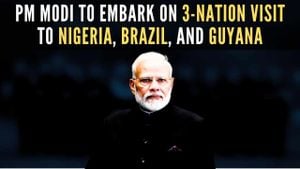Mali is once again at the forefront of political turmoil as tensions escalate within its ruling military junta. The recent dismissal of Prime Minister Choguel Maïga has raised alarms both domestically and internationally, shedding light on the fragility of Mali's transitional governance. Following his criticisms of the military regime's handling of postponed elections, Maïga found himself out of favor with the leadership, leading to his abrupt firing.
The situation unfolded rapidly over the past week. Maïga was removed just days after he publicly addressed his concerns about the junta's delay tactics. During a rally with supporters, he stated, "They’re acting like the transition is endless," emphasizing the potential risks such confusion posed to the nation's political stability. His remarks highlighted the growing discourse around the junta's commitment to restore civilian rule, originally promised by March 2024.
These allegations were met with swift action from the military leadership. General Assimi Goita, the effective ruler of Mali since the junta seized power through two coups — first in 2020 and again the following year — issued the dismissal through state television. The move, reflective of the regime's intolerance for dissent, drew widespread attention as it underscored the precariousness of political discourse within the country.
Maïga's tenure began with initial optimism when he was appointed by the junta two years ago. Many viewed him as a potential bridge between the military rulers and the civilian population, but his recent candid comments seem to have jeopardized this perception. Notably, his criticism came amid mounting frustrations among Malians over the junta's failure to hold elections as promised.
The nation's political environment is compounded by the volatile security situation. Mali has been shaken by extremist violence and military coups over the last decade, leaving it increasingly vulnerable. Analysts point out the alarming trend of growing insecurity, with the junta's ascent to power failing to quell attacks from Islamic militants or improve overall safety for civilians. Reports have emerged indicating record numbers of both attacks and civilian deaths, indicating the worsening socio-political climate.
Making matters worse, just days before Maïga's firing, the junta had also arrested several opposition figures and activists who dared to speak against its governance. The discontent with the ruling junta is palpable, going beyond Maïga’s remarks. Many citizens are rallying behind calls for genuine democratic processes, leading to widespread demonstrations against the regime.
Interestingly, the dismissal of Maïga signals not just internal strife but opens up questions about future governance. With no clear successor announced by the junta, the move generates more uncertainty about who will lead the charge to the promised democratic transition. Speculations swirl around potential candidates who could fill the role; analysts suggest the junta might position someone less likely to undermine its authority.
The geopolitical ramifications of this turmoil are significant as well. Mali, along with neighboring Burkina Faso and Niger, has pivoted away from Western alliances, particularly the departure of French and American military forces. Instead, these military-led regimes have been seeking new security partners, with noticeable overtures toward Russia. This shift has created fresh dynamics within the Sahel region, often layered with deepening security crises.
Simultaneously, the international community watches cautiously. Calls for non-interference are echoed from Moscow, positioning itself as supportive of the junta, yet questions arise on whether this approach can translate to stability or merely exacerbate existing conflicts.
Historically, Mali's challenges can be traced back to long-standing issues, where economic and social disparities have contributed to unrest. The military's approach to governance has often been reactive rather than preventive, allowing crises to expand unchecked. Political analysts argue this pattern may repeat itself if countermeasures are not deployed swiftly.
Connections to Western countries have soured, with Mali's junta apologizing for past actions, yet not expressing intention to remedy the political situation through transparency or elections. The upcoming months will be pivotal — whether Mali can navigate through this transitional quagmire remains uncertain.
For the citizens of Mali, the hope for stability lies behind the shadows of military trappings and turbulent leadership changes. With continuing instability and the looming threat of violence, how the people respond to these recent events may form the basis of the next phase of Mali's political narrative. Tensions remain high as citizens brace themselves for the repercussions of their government decisions, now playing out on the world stage.



